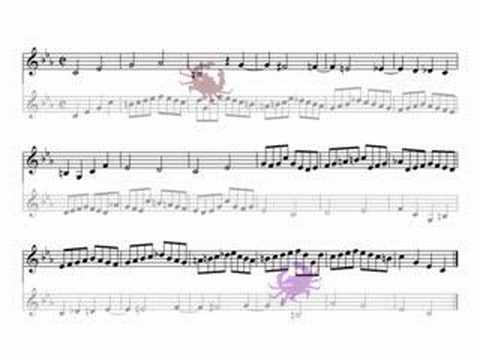absolutely, thanks ![]()
theres also coagula(i think thats the name,havent used it in ages)
A video response to Aphex Twin - Equation.
pornoa.rns made with Renoise 1.X, 8.3.2oo4
probably because his music was very strict and based upon a framework for music that was popular around that time.
human music based on math is a better perspective.
you take what humans perceive as enjoyable:
motifs, timing, changes, dynamics, emotion, subjective interest and varying influences of the intended listening group, etc.
Then base your math on that premise.
The disconnect in translating the formula for a volume of a glass of water to music, is huge.
No matter how many cycles an apple seed grows an apple tree, it will never become a Cat, even with help.
How would one go about actully adding this stuff to their music? I will DEFINITLY do this lol… It’s just toooooo cool NOT to experiment with ![]() [center]
[center]
[/center]_o0m
Another small cache of apps (including a few that have been mentioned already):
http://www.databaseaudio.co.uk/applications.php?category=22
Some apps for Algorithmic Composition: http://www.nicolasfournel.com/
Well, Bach’s well-tempered clavier is well-known for it’s mathematical structure. Just try to play one of those tunes backwards… VERY interesting. (no satanic messages, though… ![]() )
)
Example here:
2 words.
Aphex twin.
IMHO, any one composing music using western / even temperament scales is making maths-based music: http://en.wikipedia.org/wiki/Pythagorean_tuning
Music is emotion. It is not math!
Of course, in addition to notation, plotting on an XY graph (frequency L, frequency R) can get interesting too.
However, as shown here(let the video buffer before playing), (with x and z equivalent to x and y above) if y=amplitude, than if y is too high there will either be insane clipping or the program will crash.
Basic waveform creation allows you to easily figure out the limits of the audio signal(0 db- the clipping level), as shown below.
(wow, what a long post.)
I double this … ![]()
Rather, it is math transformed into emotion.
It depends on how you look at it,
there are those who cannot engineer emotions, only react to the experience
and there are those who engineer emotions, changing a viewer or listener’s neurological pathways.
There’s a cute short scene in the 2010 film Inception, where the team is trying to figure out a pathway to
change their mark’s decision through catharsis. A bank heist inside the mind.
There are different types of math, choose the appropriate type for the job.
Here’s the carousel scene from the show Mad Men, about 3 mins of viewing time but countless hours engineering the whole of it.
Just wanted to drop this in here:
[i]
[/i]
http://www.amazon.com/Statistics-Musicology-Interdisciplinary-Jan-Beran/dp/1584882190
So narrowminded. Everything is music.
If anything I would of said emotion transformed into math.
Plus emotions are only the results of biochemical reactions and all sciences are just an extension of maths at the end of the day ![]()
Just like not every song, chord progression, combination of tones will sound good, not ever equation will sound good. Once you find one equation that sounds good you can use it as the basis to make similar work.
Think about what numbers are common in music.
1’s, 3’s, 5’s, 8’s for chords
2’s, 4’s, 6’s, 8’s for time
7’s if you’re Vsnares


